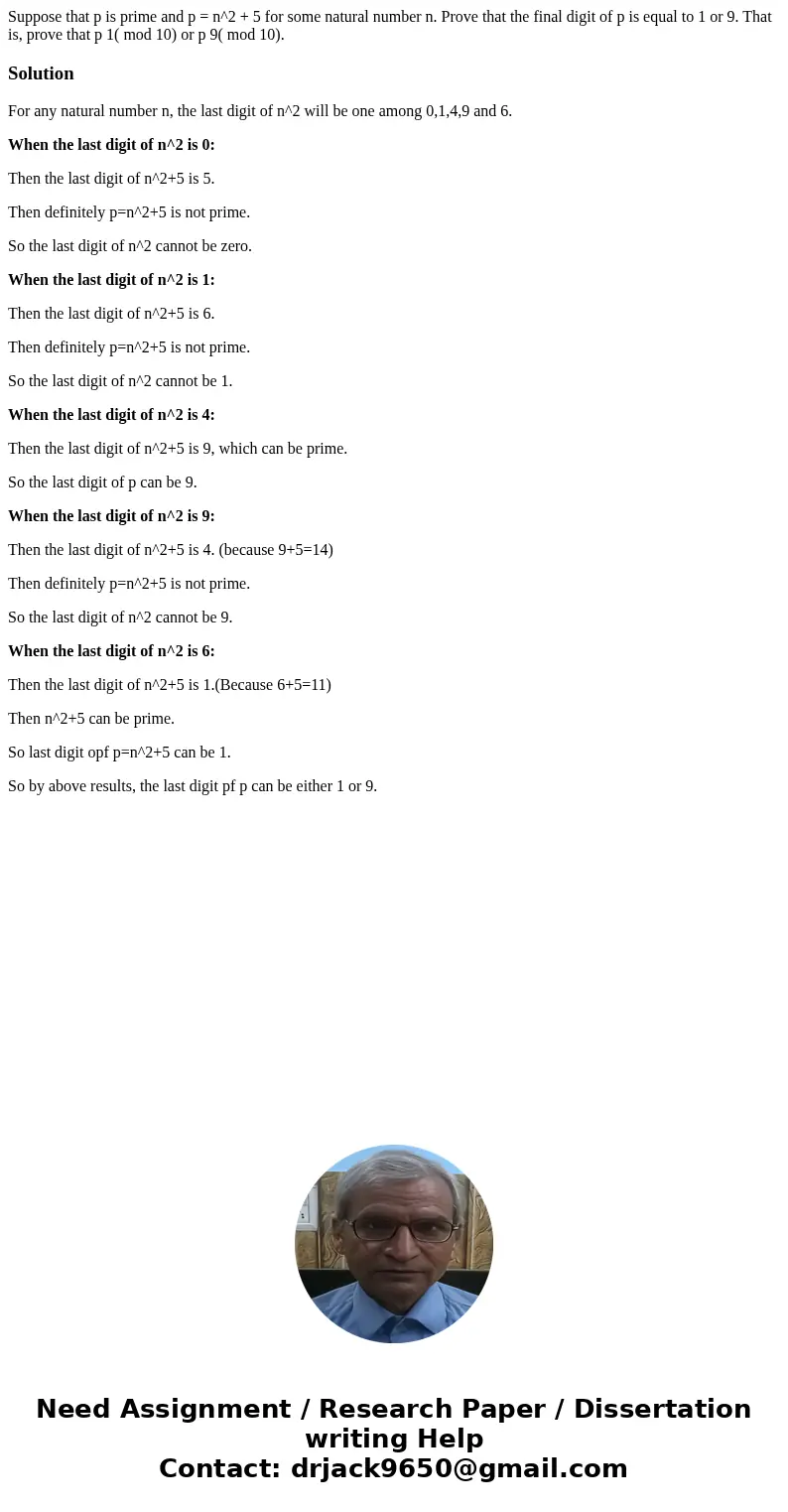Suppose that p is prime and p n2 5 for some natural number
Suppose that p is prime and p = n^2 + 5 for some natural number n. Prove that the final digit of p is equal to 1 or 9. That is, prove that p 1( mod 10) or p 9( mod 10).
Solution
For any natural number n, the last digit of n^2 will be one among 0,1,4,9 and 6.
When the last digit of n^2 is 0:
Then the last digit of n^2+5 is 5.
Then definitely p=n^2+5 is not prime.
So the last digit of n^2 cannot be zero.
When the last digit of n^2 is 1:
Then the last digit of n^2+5 is 6.
Then definitely p=n^2+5 is not prime.
So the last digit of n^2 cannot be 1.
When the last digit of n^2 is 4:
Then the last digit of n^2+5 is 9, which can be prime.
So the last digit of p can be 9.
When the last digit of n^2 is 9:
Then the last digit of n^2+5 is 4. (because 9+5=14)
Then definitely p=n^2+5 is not prime.
So the last digit of n^2 cannot be 9.
When the last digit of n^2 is 6:
Then the last digit of n^2+5 is 1.(Because 6+5=11)
Then n^2+5 can be prime.
So last digit opf p=n^2+5 can be 1.
So by above results, the last digit pf p can be either 1 or 9.

 Homework Sourse
Homework Sourse